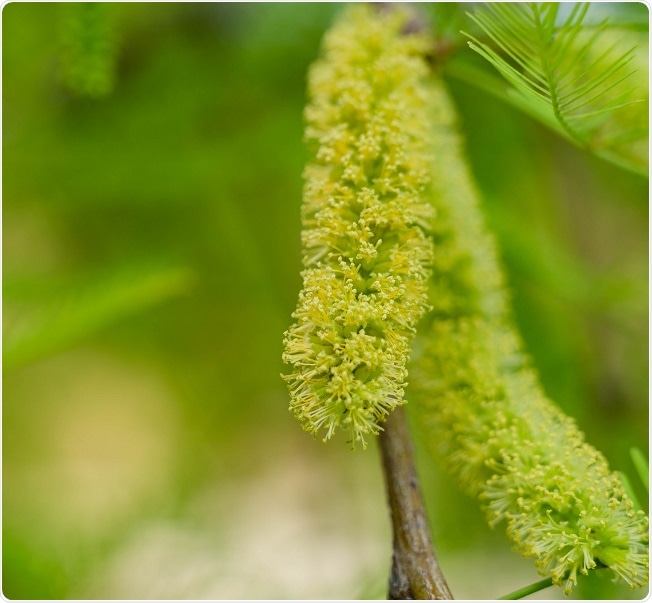Proper management of an invasive shrub in mosquito-prone regions could reduce mosquito populations and malaria transmission, say researchers.

Credit: Pritha Photography/Shutterstock.com
In a study carried out in Mali villages, removing flowers from the Prosopis juliflora shrub significantly reduced the number of malaria vector mosquitoes. The procedure seemed to eradicate lots of the older, female, Anopheles mosquitoes that transmit the parasite.
Prosopis juliflora, which is native to Central and South America, was introduced into Africa in the late 1970s and early 1980s in an effort to reduce deforestation. The rapidly growing shrub has become one of the most invasive shrubs in the world, occupying millions of hectares in areas of Africa including Mali, Chad, Kenya and Sudan.
Experts believe the mosquitoes use flower nectar from this shrub as an energy source to stay alive.
Mosquitoes obtain most of their energy needs from plant sugars taken from the nectar of flowers so we wanted to test the effect removing the flowers of the shrub Prosopis juliflora would have on local mosquito vector populations,”
Lead author of the study, Gunter Muller, Hebrew University Hadassah Medical School
As reported in Malaria Research, the team set up CDC-UV light traps in nine villages in the Bandiagara District, six of which were home to the shrub and three of which were not. In an initial round of monitoring, mosquito populations collected in the traps were assessed. After eight days, flowers were removed from the shrubs in three of the villages and the light traps were assessed again.
In villages where the flowers were removed, the number of mosquitoes caught in the traps fell by almost 60%. Importantly, the number of mature, sugar-fed vector females dropped to similar levels to those recorded in villages where the shrub was not present.
The authors say the study shows how an invasive plant shrub promotes the malaria parasite transmission capacity of African malaria vector mosquitoes. They recommend not introducing exotic, potentially invasive plants and Muller says “removal of the flowers could be a new way to shift inherently high malaria transmission areas to low transmission areas, making elimination more feasible."
Malaria control expert, Jo Line (London School of Hygiene and Tropical Medicine), says the innovative approach has amazing potential as a malaria prevention strategy: "It appears to show that by changing the landscape, not using insecticides or drugs, we can make a difference."
Sources